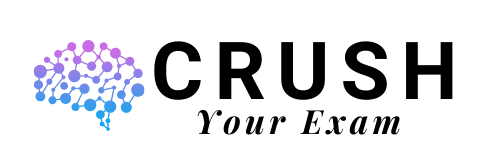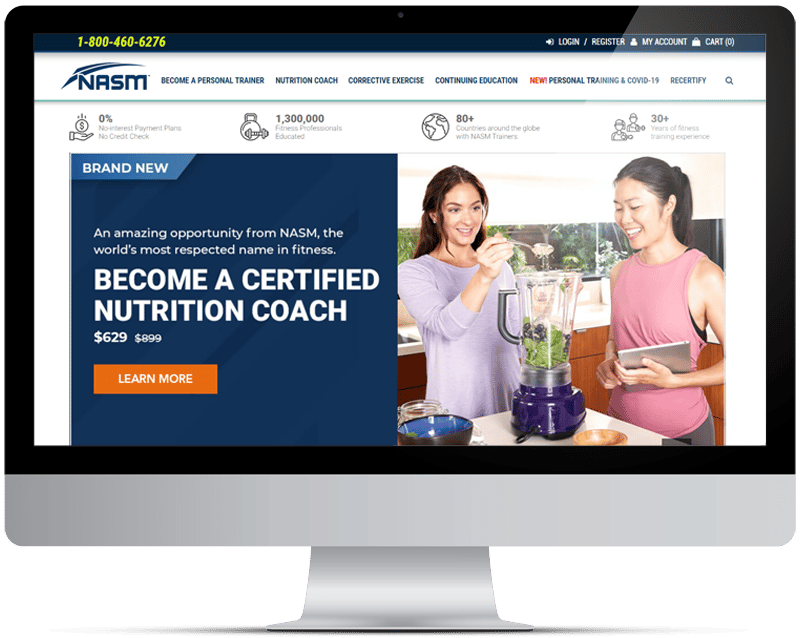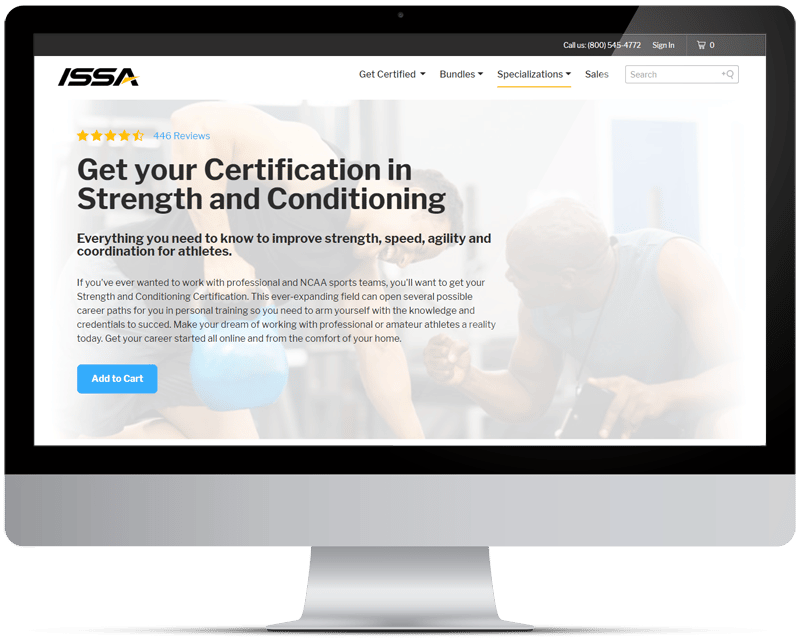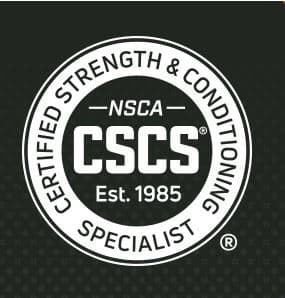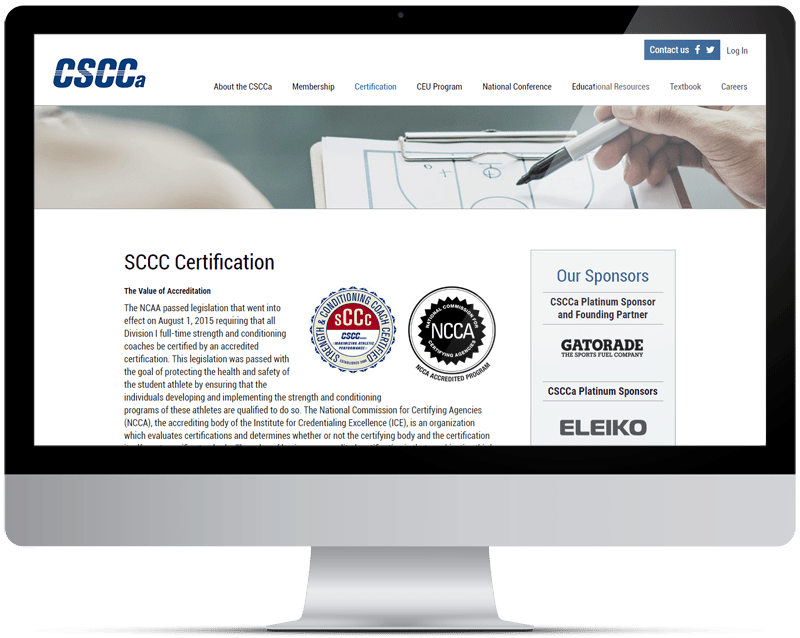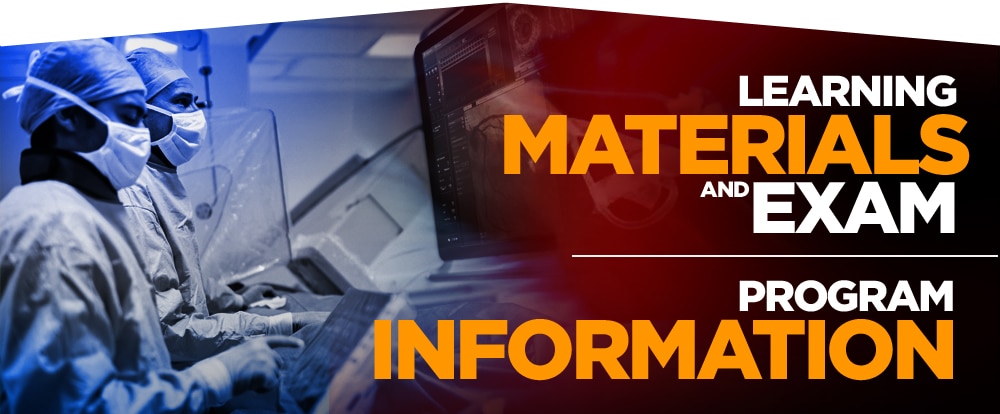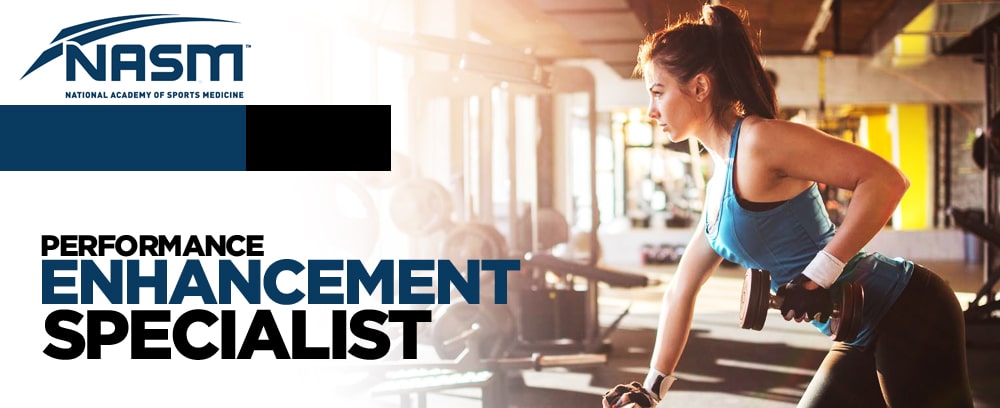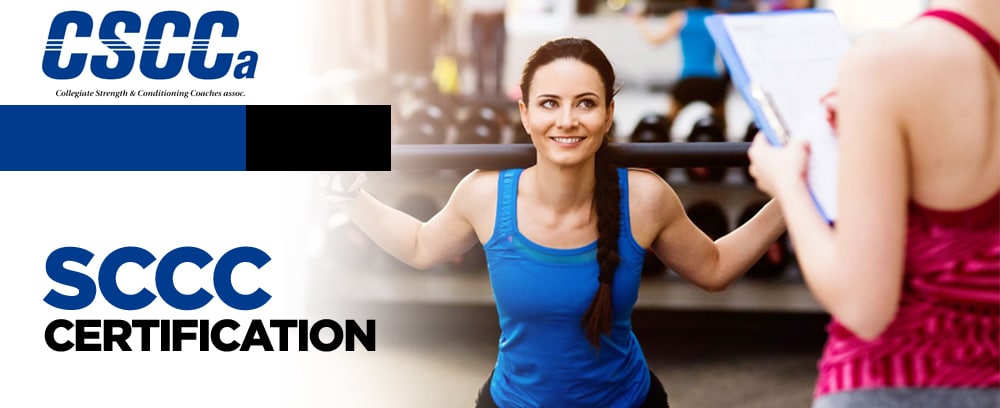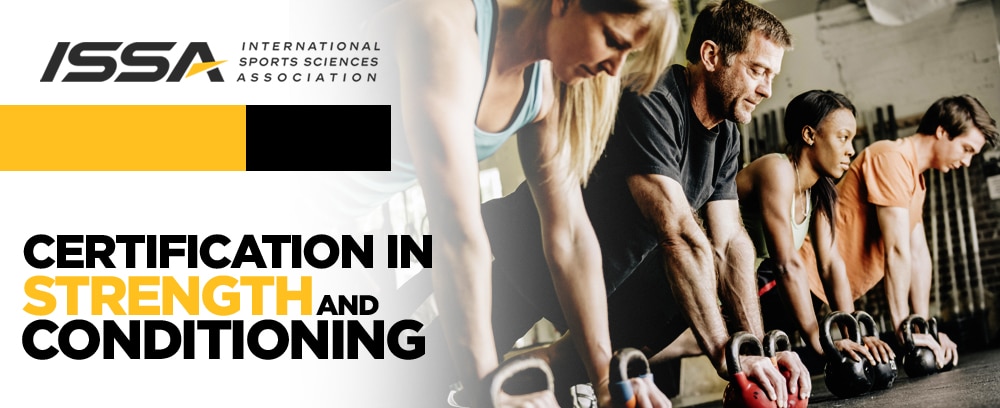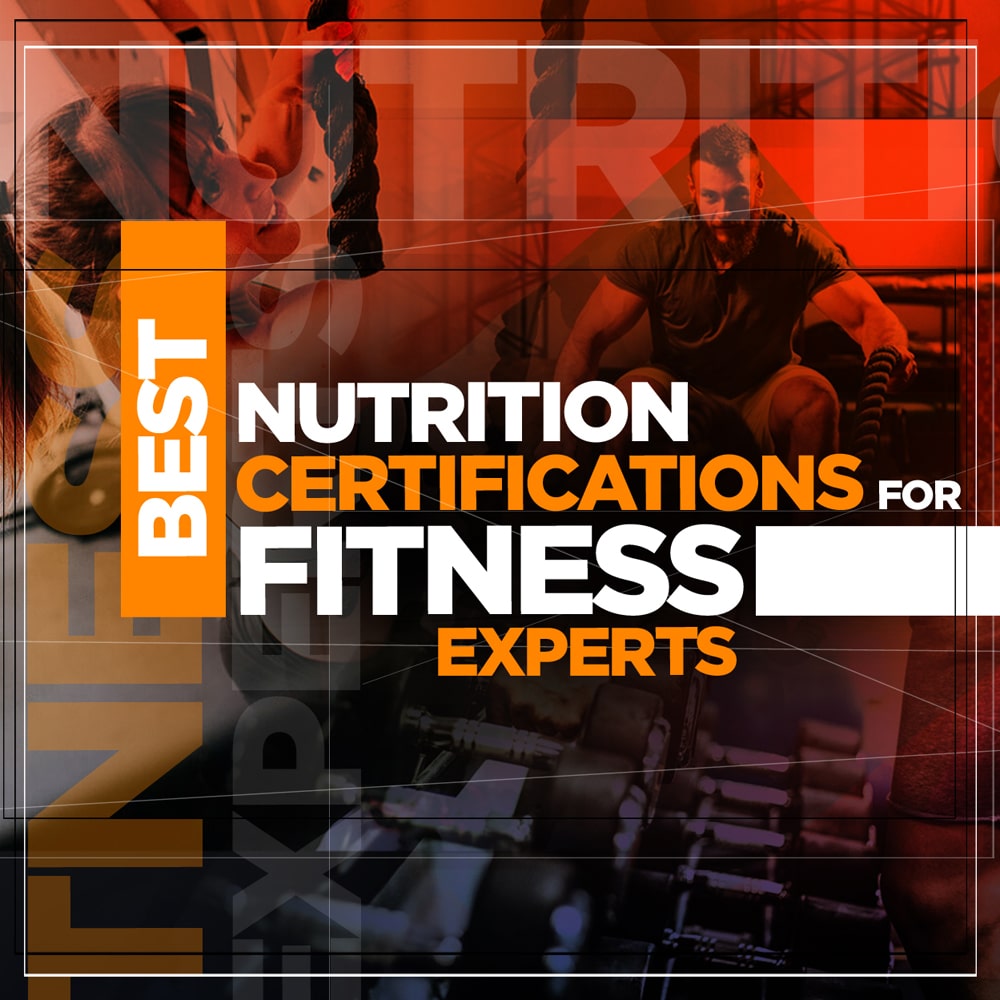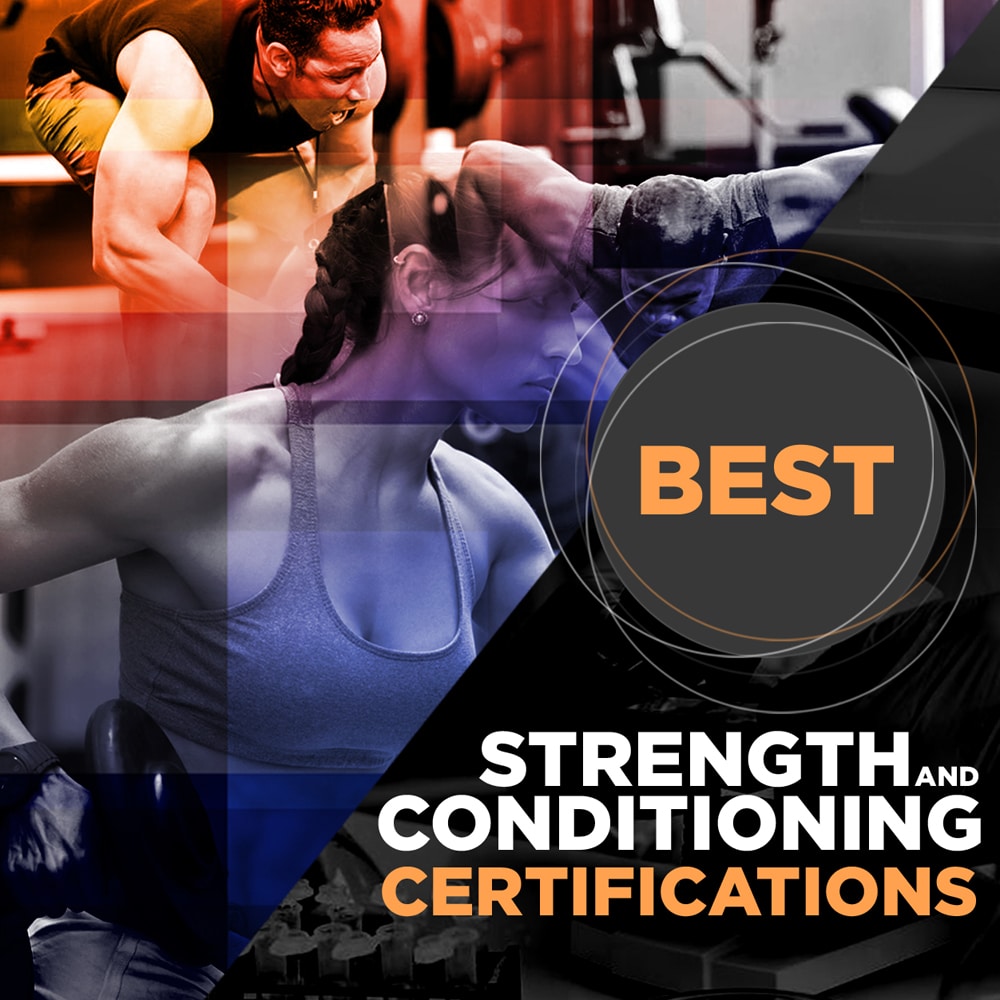
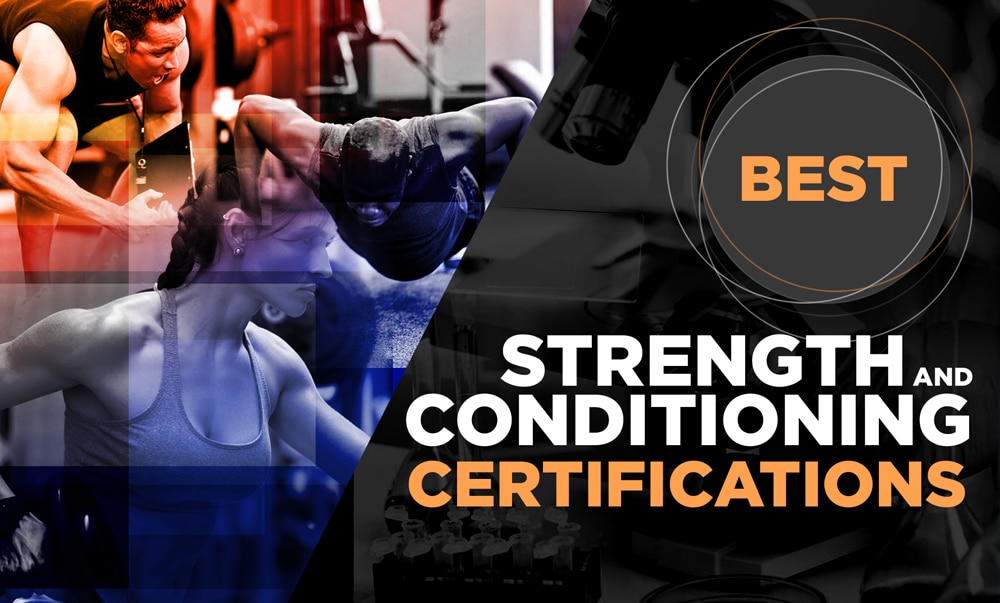
Finding the best strength and conditioning certification can be an overwhelming task. This happens especially if you’re not familiar with the differences. In this post, we’ll cover the top four credentials so that you can pick the one that fits your needs. They include CSCS, NASM PES, SCCC and ISSA.
Earning these certifications is essential since they will improve your skills in exercise science and training. Let’s dive in to get the difference!
Top Strength and Conditioning Certifications for 2026
In this post, we present the top 4 strength and conditioning credentials. We’ll cover the essential aspects like price, learning materials, recognition, requirements and many more. Once we’re through, picking the best strength and conditioning credential that is best for you will be easy.
1. NASM PES
The PES (Performance Enhancement Specialist) certification is provided by NASM (National Academy of sports medicine). This certification is also known to be a gold standard when it comes to the field of strength and conditioning. It’s designed from NASM’s famous OPT (Optimum Performance Training) model used in the general training credential.
The OPT model is considered as the best approach for progressing customers and athletes safely and efficiently.
Some of the prerequisites for taking the NASM PES credential include:
- Hold a NASM CPT
- Have a CPT credential that is accredited by DEAC or NCCA
- Have a 4-year university degree
- Be a certified and licensed massage therapist
- Requirements for earning the credential if you reside in Europe
- Be CPR/AED certified
- Must be above 18 years
- Must be a high school graduate
NCCA accredits the certification. This is a great sports performance credential for earning the strength and conditioning specialist badge. Visit the NASM PES page for more details.
2. ISSA SSC
ISSA SSC (Strength and Conditioning Coach) is the most recent credential offered by the ISSA (International Sports Science Association). It’s the only credential that can be completed online, and this makes it attractive to most people. The standards of how hard it is to earn the credential are somehow relaxed.
So, the information you acquire from the strength and conditioning credential is legit.
To get this certification, you must:
- Be above 18 years of age
- Be a high school graduate
- Possess a valid CPR/AED credential
DEAC approves the certification.
3. NSCA Certified Strength and Conditioning Specialist (CSCS)
CSCS (Certified Strength and Conditioning Specialist) is a credential that is offered by NSCA (National Strength and Conditioning Association). This certification is recognized by many as the gold standard for sports performance training. It’s one of the hardest strength and conditioning credential that you can study.
You can qualify to earn this certification if:
- You hold at least a bachelor’s degree or have enrolled as a university senior
- Have a valid CPR/AED credential
- You don’t require a general CPT
Note that it’s not a must for your bachelor’s degree to in the exercise science-related field. It’s also important to note that NCCA is responsible for accrediting the certification. If you think that the CSCS is a certification you intend to pursue, you’ll need to visit Trainer Academy for the best learning materials.
4. CSCCa SCCC
The SCCC (Strength and Conditioning Coach Certified Certification) is provided by CSCCa (Collegiate Strength and Conditioning Coaches Association). This is one of the most prestigious strength and conditioning credential.
Currently, this credential is the hardest to earn out of the ones we’ve listed. In fact, there is only one exam date every year. Nearly 200 candidates register to take the SCCC exam every year.
The requirements for earning the certification include:
- Candidates must complete an internship with a CSCCa accredited mentor for up to 640 hours
- You need to be CPR/AED approved and valid
- Must have a bachelor’s degree in any field
- Must have the general CPT credential
The certification is approved by NCCA.
Recognizing Each Certification
The popularity and acceptance of all these certifications vary based on who will employ you. If you intend to work for a collegiate or professional sports team, you can go for the SCCC, PES and CSCS certifications. Getting the ISSA might not be the best option since the certification is new and unpopular.
Learning Materials and Exam/ Program Information
NSCA CSCS
There are a couple of learning materials that you can use when preparing for the CSCS exam. The NSCA expects many candidates are from the exercise science-related university degree. So, here are some of the test prep materials that they provide:
- Online practice questions
- Live clinics
- Extra booklets like exam content description and exercise technique study guide.
- The Essential of Strength Training and Conditioning, which is a textbook
Since the CSCS learning materials are not the best, you can supplement them with study materials offered by Trainer Academy.
Generally, the CSCS learning resources are fundamental. That’s because the assumption is you’re coming from the exercise science field.
The CSCS Exam
This exam consists of two sections. The portion of the scientific foundation and the practical portion. Let’s look at the two sections.
Scientific Foundation
This section comprises of 95 questions that are presented in multiple-choice format. You’ll have 90 minutes to complete the section. You’ll be tested on the expertise of anatomy, nutrition, biomechanics and exercise physiology.
The exam is broken down into:
- 44 questions will cover exercise science
- 19 questions will cover sports psychology
- 15 questions will be non-scored
- 17 questions are nutrition-related
Practical/Applied Section
The applied and practical section will measure your skills for evaluation, program design, testing, exercise and organization techniques. The section consists of 125 questions that are presented in multiple-choice format. You have 150 minutes to complete this section.
The section is broken down into:
- 40 questions covering exercise technique
- 38 question covering program design
- 12 questions covering organization and administration
- 20 question covering testing and evaluation
- 15 non-scored questions
The two sections are graded on a scale of 1-99. So, you must score above 70 marks in the two sections to get the CSCS. If you don’t pass the exam on the first trial, you’ll need to pay $340 to redo both sections of the exam. However, if you fail one section, the fee to retake one section is $250. So, use the right study guide to ensure you pass the exam.
NASM PES
This certification has numerous study resources. They include:
- The primary textbook
- Online practice tests
- Application video clips
- A syllabus and study guides
- Exercise library
- Vide lectors
- Mini questions for every chapter
- Attending a live workshop for the complete package
- Sports specific lecture videos
The NASM PES Exam
The exam tests you on five different sections. You will be measured on exercise assessment, exercise technique, applied and basic sciences, program design, and nutrition. The exam is taken online and comprises of 100 questions that are presented in multiple-choice format. You must get at least 70% to pass the test. You’ll have 90 minutes to answer all the questions.
CSCCa-SCCC
The SCCC test is hard to ace. That’s because they don’t have their special study resources for the exam. The majority of your learning should come from the 640 hours needed internship with your mentor.
That makes preparing for the SCCC harder. Here are some of the study resources they recommend for candidates:
- Physiology of Sport and Exercise, 6th Ed
- Designing Resistance Training Programs, 4th Ed
- Principles and Practice of Resistance Training
- Health Fitness Management, 2nd Ed
- Exercise Physiology: Theory and Application to Fitness and Performance, 9th Ed
- ACSM’s Health/Fitness Facilities Standards and Guidelines
- Essentials of Strength Training and Conditioning, 4th Ed
The SCCC Exam
The SCCC test is available in two sections. They include a written test and a practical test.
Written Test
The SCCC written test tests your skills in various fields of exercise like;
- Muscle physiology
- Biomechanics
- Cardiorespiratory system
- Goal setting
- Weight management
- Speed or plyometric training
- Exercise technique
- Flexibility training and nutrition
- Adaptation to training
- Program design
Practical Test
The SCCC practical test is a rigorous procedure. Before you take this test, you must submit up to a one-week training program for a specific sport, like you are handing over the program to a professional athlete.
This exam is completed in front of the SCCC certified specialists. You’ll have to validate:
- Your strength and conditioning skills and techniques
- Verbally demonstrate skills of strength and conditioning
Candidates will also need to support their 7-days program that they designed for their imaginary athletic. You must pass the two section to earn the certification. They give a fail or pass grade.
ISSA SSC
Like the NASM PES, the ISSA SSC credential offers numerous study resources that are unique to their program. Some of these study materials include:
- A primary textbook that is 615 pages
- A study workbook to assist you together with a book
- 250 3-D animated exercise online
- Practice test and section question
- Online forum
- Availability of SSC accredited specialist to answer any question you might have
The ISSA SSC test
This exam is completed online. Furthermore, it’s an open book. This means you have unlimited time to tackle the test. The questions will cover the following domains:
- Nutrition
- Sport psychology
- Prevention of injury for athletes
- Fitness assessment
- Sport-specific training
- Anatomy
Certification Cost
Now, let’s look at how much you’ll need to get any of these certifications. The rate of a credential can be the break or make it for many personal trainers.
CSCS
The cost of this credential depends on the number of study resources you buy and also if you are an NSCA member.
The flat rate for this test is $340 if you are a member and $475 if you are a non-member.
Furthermore, there are two common membership rates. The first one is the student price, that is $65 annually. The other one is the professional rate that is $120 per year. Based on the study resources, the least expensive way is to buy their primary textbook known as The Essentials of Strength Training and Conditioning. This textbook is available at $70-$80.
Generally, it will cost you nearly $500 at the lower end to become CSCA certified. If you plan to get the study resources, but you’re a non-member, you will spend like $900.
Moreover, you need to get 6.0 CUEs for NSCA CSCS re-credential after three years.
NASM PES
The certification is available in three packages that are accessible on the NASM site at a 30% discount. The cost of each of these package is:
- All-Inclusive Option is currently at $699 down from $999
- Premium Self-Study Package is now $594 down from $849
- Self-Study Package is currently at $489 down from $699
SCCC
Like the CSCS credential, the price of SCCC credential is dependent on whether you’re a CSCCa member or not. So, non-members are required to pay $470 while members are required to pay $360. The annual SCCC membership is available in two packages. It will cost $55 for students a year and $110 for full-time personal trainers.
Irrespective of the option you choose, you’ll spend nearly $500 to earn the SCCC credential.
You might end up spending another $500 if you decide to buy each of the recommended textbooks.
Conclusion
So, that’s the most important information you need to know about the top strength and conditioning certifications. For professional or collegiate training, SCCC, PES and CSCS are the top certifications. However, you can pick CSCS or PES since they don’t take a lot of procedures to earn them.
For the regular personal trainer who wants to begin working with professional athletes on sports conditioning, any of the four credentials is enough. About the study resources, SCC and PES credential stand out. This is because the SCCC doesn’t have enough study resources. The CSCS is a hard test in regards to question difficulty. For the rates, you’ll spend an average of $500 to get any of the four certifications. Then again, it will depend on what kind of study resources you want to use during your preparation.
